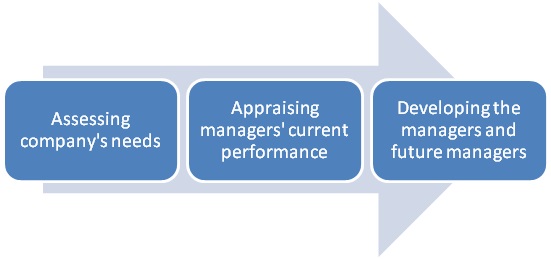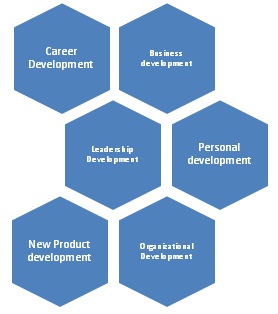- Business Concepts ›
- Human Resources (HR) ›
- Employee Development
Employee Development
Definition & Meaning
This article covers meaning & overview of Employee Development from HRM perspective.
What is meant by Employee Development?
After training, management development begins. It is an attempt to improve the overall performance of the organization by imparting knowledge or increasing skill sets of the employees. It also refers to the process of improvising or transforming an already existing system to match up to the current trends prevailing in the market.
It is a part of Succession planning, which refers to the process of planning and filling the senior level openings. Succession planning and management development both stem from employer’s strategy, vision and personnel plans.
Types of Development:
• Long Term: It refers to the change and betterment of the organization or an individual which stays for a very long time.
Example: Introduction of computers in banks. They developed their recording system from pen and paper to computer based, which improved the efficiency and productivity of transactions done. It also got easier to keep a record of each and every account holder.
• Short Term: It means bringing a change or developing an individual for a short period of time, which allows the employee to learn more and gain knowledge.
Example: Concepts like job rotation helps the employee to learn about different fields of an organization. He/she can explore different areas and gain more and more knowledge.
Process of management development:

Development in management could be in terms of the following:

The above diagrams depict the process of development.
Hence, this concludes the definition of Employee Development along with its overview.
This article has been researched & authored by the Business Concepts Team which comprises of MBA students, management professionals, and industry experts. It has been reviewed & published by the MBA Skool Team. The content on MBA Skool has been created for educational & academic purpose only.
Browse the definition and meaning of more similar terms. The Management Dictionary covers over 1800 business concepts from 5 categories.
Continue Reading:
What is MBA Skool?About Us
MBA Skool is a Knowledge Resource for Management Students, Aspirants & Professionals.
Business Courses
Quizzes & Skills
Quizzes test your expertise in business and Skill tests evaluate your management traits
Related Content
All Business Sections
Write for Us